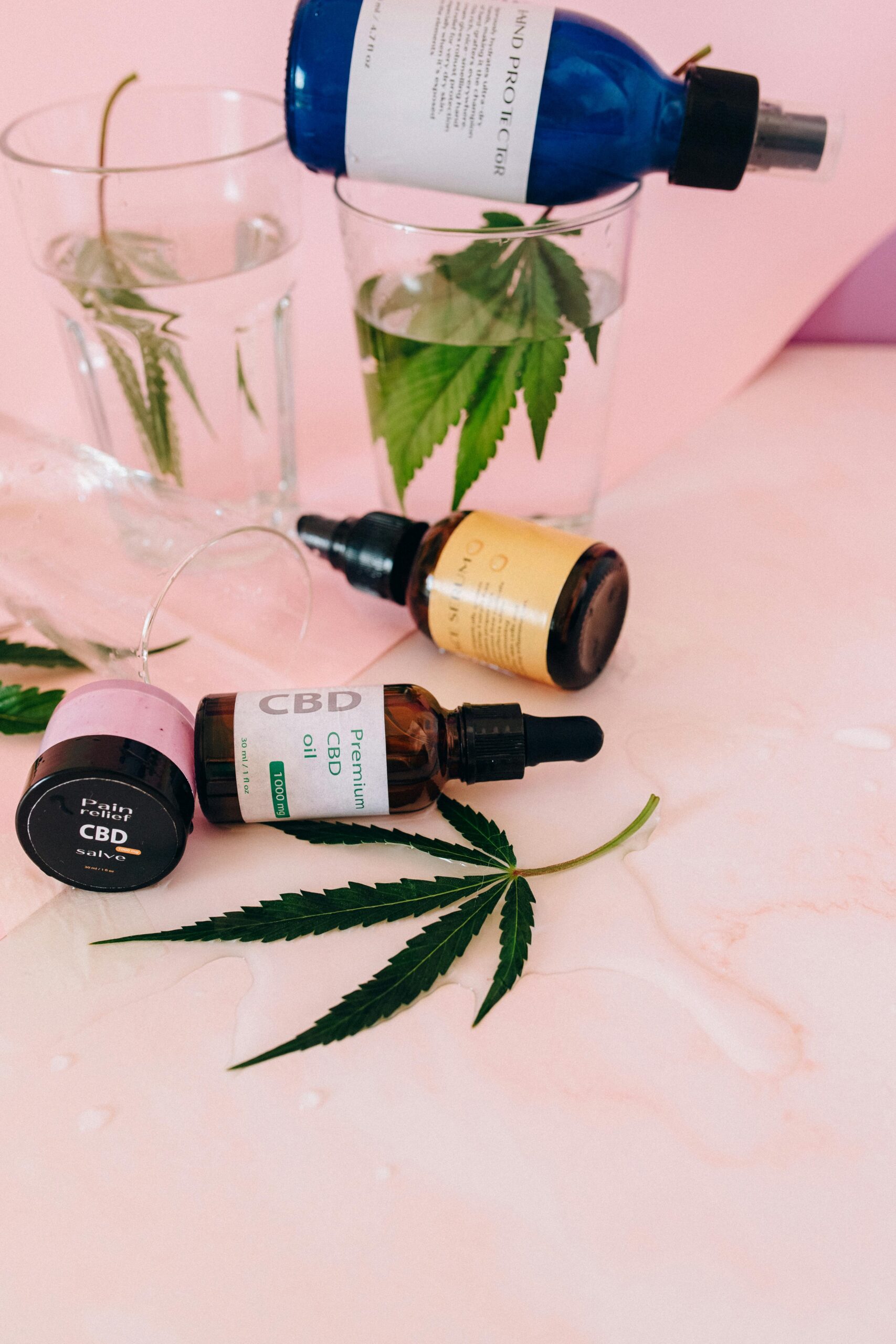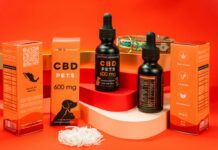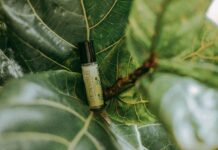Is hemp oil the same as CBD oil? This question has been buzzing all over the internet, sparking curiosity among wellness enthusiasts and health-conscious consumers alike. Many people often confuse these two popular products, assuming they’re identical. But the truth might surprise you! In this article, we’ll dive deep into the key differences between hemp oil and CBD oil, helping you make informed decisions for your health journey. If you’ve ever wondered, “What exactly is hemp oil?” or “How does CBD oil work?”, you’re in the right place to unlock those answers.
Understanding the difference between hemp oil and CBD oil is crucial before you invest in these trending natural remedies. While both oils come from the hemp plant, their extraction methods and benefits vary significantly. Are you curious about which oil packs more health benefits? Or maybe you’re wondering which one is legal and safe to use? We’ll break down the unique properties of hemp seed oil versus full-spectrum CBD oil, revealing surprising facts about their composition, uses, and effects. This knowledge can empower you to choose the best product tailored to your wellness goals.
So, what makes hemp oil and CBD oil different in terms of their chemical makeup and therapeutic value? Stick around as we explore the science behind these oils and clear up common misconceptions. Whether you’re a beginner or someone looking to deepen your understanding of natural remedies for anxiety, pain relief, and skincare, this guide will unfold everything you need to know. Ready to uncover the truth about hemp oil vs CBD oil? Let’s get started!
What Are the Top 5 Differences Between Hemp Oil and CBD Oil You Need to Know
When you walk into a natural health store in New York or browse online for hemp-related products, you might see both hemp oil and CBD oil being offered. Many people ask, “Is hemp oil the same as CBD oil?” The short answer is no, but the confusion is very common because these oils come from the hemp plant. To clear things up, let’s dive into the top 5 differences between hemp oil and CBD oil you need to know before making your purchase or trying them out for your health.
What is Hemp Oil and What is CBD Oil?
Before we get into the differences, it’s important to understand what each oil actually is. Hemp oil, also called hemp seed oil, is made by cold-pressing the seeds of the hemp plant. This oil is rich in nutrients like omega-3 and omega-6 fatty acids but usually contains no cannabinoids like CBD or THC.
On the other hand, CBD oil is extracted from the flowers, leaves, and stalks of the hemp plant. It contains cannabidiol (CBD), a compound that has gained attention for its potential therapeutic benefits, such as reducing anxiety, pain, and inflammation. Unlike hemp oil, CBD oil may contain other cannabinoids but usually comes with very low or no THC content (below 0.3% as per legal standards).
Top 5 Differences Between Hemp Oil and CBD Oil
Source of Oil Extraction
- Hemp oil comes from hemp seeds only. These seeds do not contain CBD or THC.
- CBD oil is derived from the whole hemp plant, mainly the flowering parts, which are rich in cannabinoids like CBD.
Cannabinoid Content
- Hemp seed oil generally contains no cannabinoids, making it free from CBD and THC.
- CBD oil contains a high concentration of CBD, and sometimes other cannabinoids, but with negligible THC.
Uses and Benefits
- Hemp oil is mostly used as a dietary supplement or in skincare due to its nutritional content, including fatty acids and vitamins.
- CBD oil is used primarily for therapeutic effects, such as managing anxiety, chronic pain, and epilepsy.
Extraction Process
- Hemp seed oil is extracted by cold-pressing the seeds, a process similar to making olive oil.
- CBD oil requires a more complex extraction method, often using CO2 or ethanol to pull cannabinoids from the plant.
Legal Status and Regulations
- Hemp seed oil is widely legal and sold as a food product or cosmetic ingredient in many places.
- CBD oil’s legal status varies by state and country, often regulated because it contains cannabinoids, even if THC is low.
Is Hemp Oil The Same As CBD Oil? A Quick Comparison Table
| Feature | Hemp Oil | CBD Oil |
|---|---|---|
| Source | Hemp seeds | Hemp flowers, leaves, stalks |
| Cannabinoids | None | High in CBD, low THC |
| Extraction Method | Cold-pressing seeds | CO2 or solvent extraction |
| Primary Use | Nutrition, skincare | Therapeutic, medical uses |
| Legal Status | Generally unrestricted | Varies, regulated product |
Historical Context of Hemp and CBD Oils
Hemp has been cultivated for thousands of years, primarily for its fibers and seeds. Ancient cultures in Asia and Europe used hemp seeds for food and oil, appreciating its nutritional benefits long before scientists knew about cannabinoids. CBD, however, was only identified in the 20th century, with research expanding rapidly in recent decades after the discovery of the endocannabinoid system in the human body.
In New York, the hemp industry has grown significantly since the legalization of industrial hemp farming in 2019. This growth has led to a surge in products labeled as hemp oil or CBD oil, adding to the confusion among consumers. Understanding the difference is crucial so you don’t buy hemp seed oil when you want CBD oil for health reasons.
Practical Examples: How To Use Hemp Oil vs CBD Oil
- If you want to add more healthy fats to your diet, cooking with hemp oil or drizzling it on salads is a good choice. Its nutty flavor and high omega content makes it popular among natural food lovers.
- For managing stress or chronic pain, people might take CBD oil under the tongue or use topical creams infused with CBD. These products are specifically formulated to deliver cannabidiol for health benefits.
- Many skincare products contain hemp seed oil for moisturizing properties but don’t provide the anti-inflammatory benefits linked to CBD.
Why Knowing the Difference Matters
Confusing hemp oil with CBD oil can lead to disappointment or ineffective use. For example, buying hemp seed oil expecting it to relieve anxiety will probably not work because it lacks CBD. Also, if you’re subject to drug testing, using hemp seed oil is unlikely to cause issues, but some CBD oils could contain trace THC that might
Hemp Oil vs. CBD Oil: Which One Is Better for Your Health in 2024?
Hemp Oil vs. CBD Oil: Which One Is Better for Your Health in 2024?
Many people in New York and beyond get confused when they hear about hemp oil and CBD oil. They often ask, “Is hemp oil the same as CBD oil?” or “Which one should I use for my health?” The truth is, these two oils come from the cannabis plant but they are not exactly the same. Each has unique properties, benefits, and uses that might suit different needs. As we move into 2024, it’s important to understand the key differences before choosing one for your natural health routine.
Is Hemp Oil The Same As CBD Oil? Discover The Key Differences
First thing first, hemp oil and CBD oil come from different parts of the hemp plant. Hemp oil, sometimes called hemp seed oil, is made by cold-pressing the seeds of the hemp plant. These seeds, however, do not contain CBD or THC, the compounds most known for their effects on the body. Instead, hemp seed oil is rich in nutrients like omega-3 and omega-6 fatty acids, antioxidants, and vitamins, making it a popular ingredient in skincare and cooking.
On the other hand, CBD oil is extracted from the flowers, leaves, and stalks of the hemp plant, which contain high concentrations of cannabidiol (CBD). CBD is one of the many cannabinoids found in cannabis but it does not produce the “high” associated with THC. This oil is sought after for its potential therapeutic benefits, such as pain relief, anxiety reduction, and anti-inflammatory properties.
Here’s a quick table to summarize the major differences:
Hemp Oil vs. CBD Oil
| Feature | Hemp Oil (Hemp Seed Oil) | CBD Oil |
|---|---|---|
| Source | Hemp seeds | Hemp flowers, leaves, stalks |
| Main Components | Nutrients (omega fatty acids, vitamins) | Cannabinoids (mainly CBD) |
| Contains THC? | No | Usually contains trace amounts (<0.3%) |
| Uses | Cooking, skincare, nutritional supplement | Therapeutic uses (pain, anxiety, inflammation) |
| Legal Status | Widely legal | Legal with restrictions, varies by state |
Historical Context: How Hemp and CBD Oils Came to Be Popular
The use of hemp dates back thousands years. Hemp seeds were used as food and oil source by many ancient civilizations including the Chinese and Egyptians. The oil was prized for its nutritional value long before modern science identified its specific compounds.
CBD oil, however, is a relatively new player in the health market. Although cannabinoids were discovered in the 20th century, it wasn’t until recent decades that CBD gained popularity as a wellness product. The legalization of hemp farming in the United States in 2018 helped to boost the availability of CBD products, including oils, tinctures, and capsules.
In New York, the growing interest in natural health remedies has made both hemp oil and CBD oil popular choices. But the confusion about their differences sometimes make it hard for consumers to decide which one to try first.
What Are The Health Benefits of Hemp Oil?
Hemp seed oil contains many nutrients essential for good health. Its benefits are mostly related to nutrition and skincare rather than direct therapeutic effects like CBD oil.
Some benefits include:
- Rich source of omega-3 and omega-6 fatty acids, which support heart health.
- Contains antioxidants that help protect cells from damage.
- Used topically, it moisturizes skin and may reduce inflammation in conditions like eczema.
- May improve hair health when used as a conditioner or scalp treatment.
- Can be incorporated into diet as a salad dressing or supplement for better nutrition.
Despite these benefits, hemp oil doesn’t interact with the body’s endocannabinoid system like CBD oil does, so its impact on mood, pain, or anxiety is limited.
What About The Benefits of CBD Oil?
CBD oil interacts with receptors in the body’s endocannabinoid system, which help regulate many body functions including pain, mood, and immune response. This interaction is why CBD oil has gained attention for various health conditions.
Some popular uses of CBD oil are:
- Reducing chronic pain and inflammation from arthritis or injury.
- Alleviating anxiety and symptoms of depression.
- Assisting with sleep disorders and improving sleep quality.
- Potential neuroprotective properties that might benefit conditions like epilepsy.
- Supporting skin health when used topically, reducing acne and irritation.
While research is still ongoing, many users report positive effects from CBD oil, making it an attractive option for natural health care.
Practical Examples: Which One Should You Choose?
If you’re living in New York and want to add a natural oil to your daily routine but unsure which one, consider the following examples:
- If you want a cooking oil rich in nutrients, or a moisturizer for dry skin, hemp seed oil is probably
Unlocking the Truth: Is Hemp Oil the Same as CBD Oil? Detailed Comparison Explained
Unlocking the Truth: Is Hemp Oil the Same as CBD Oil? Detailed Comparison Explained
If you been wondering about the confusing world of natural oils, you probably asked yourself, “Is hemp oil the same as CBD oil?” Many people in New York and beyond are curious about these oils because they both come from the hemp plant, but they are not quite identical. This article will try to explain the key differences, uses, and what you should know before buying or using either of them. You might surprised how often these two get mixed up, but the truth is, they serve very different purposes and have distinct chemical profiles.
What is Hemp Oil?
Hemp oil, sometimes called hemp seed oil, is extracted from the seeds of the hemp plant. Unlike CBD oil, it does not contain cannabinoids in significant amounts because the seeds themselves do not have these compounds. People been using hemp seed oil for centuries, especially in traditional diets and skin care routines. Its rich content of essential fatty acids, vitamins, and nutrients makes it popular as a nutritional supplement and cosmetic ingredient.
Here some facts about hemp oil:
- Extracted by cold-pressing hemp seeds
- Contains omega-3 and omega-6 fatty acids, vitamin E
- No psychoactive properties, zero THC
- Used in cooking, skincare, and haircare products
- Typically has a light greenish or golden color, nutty flavor
Because hemp oil is rich in nutrients like gamma-linolenic acid (GLA), it supports heart health and skin hydration. It’s often found in lotions, shampoos, and salad dressings. However, it does not provide the therapeutic effects associated with cannabinoids like CBD.
What is CBD Oil?
CBD oil, or cannabidiol oil, is extracted from the flowers, leaves, and stalks of the hemp plant, where cannabinoids are most concentrated. CBD is one of the many compounds called cannabinoids found in cannabis plants. Unlike THC, CBD does not cause intoxication or a “high.” It has gained popularity for its potential health benefits related to anxiety, inflammation, pain relief, and sleep improvement.
Here’s what you should know about CBD oil:
- Extracted using solvents or CO2 from hemp flowers and leaves
- Contains cannabidiol (CBD) and may have trace amounts of THC (below legal limits)
- Used primarily for therapeutic purposes
- Usually dark green to amber in color, with earthy or herbal taste
- Available in tinctures, capsules, edibles, and topical products
CBD oil works by interacting with the body’s endocannabinoid system, which regulates mood, pain, and immune response. Many New Yorkers turn to CBD products as natural alternatives for chronic conditions or wellness routines.
Key Differences Between Hemp Oil and CBD Oil
To make it easier to understand, here’s a comparison table that highlights the main differences:
| Feature | Hemp Oil (Hemp Seed Oil) | CBD Oil (Cannabidiol Oil) |
|---|---|---|
| Source | Hemp seeds | Hemp flowers, leaves, stalks |
| Main Components | Fatty acids, vitamins | Cannabinoids (mainly CBD) |
| Psychoactive Effects | None | None |
| THC Content | None | Usually less than 0.3% (legal limit) |
| Common Uses | Nutrition, skincare, cooking | Therapeutic, wellness, medical |
| Extraction Method | Cold press | CO2 extraction, solvent extraction |
| Color and Flavor | Light green/golden, nutty | Dark green/amber, earthy/herbal |
Why Do People Confuse Hemp Oil and CBD Oil?
One reason why these two oils get confused is because they both come from the same plant species, Cannabis sativa, and sometimes product labels are not clear. Additionally, the word “hemp” is often associated with CBD, even though hemp seed oil contains no CBD at all. Some companies might even market hemp seed oil as a source of CBD, which is misleading.
Another factor is that both oils have health-related claims, but their effects and uses are quite different. Someone looking for pain relief might buy hemp oil by mistake, not realizing it won’t provide the same benefits as CBD oil.
Practical Uses for Hemp Oil and CBD Oil
If you want to know which oil might suit your needs, here are some typical scenarios:
Hemp Oil:
- Adding to salads or smoothies as a nutritional boost
- Using as a moisturizer for dry or sensitive skin
- Applying in hair treatments to improve shine and strength
- Cooking at low temperatures (not suitable for high heat frying)
- Supplementing diet with essential fatty acids
CBD Oil:
- Taking orally for anxiety relief or sleep support
- Applying topically on sore muscles or joints
- Using in tinctures or capsules for chronic pain management
- Experimenting with edibles or
How to Choose Between Hemp Oil and CBD Oil for Maximum Wellness Benefits
When it comes to natural health remedies, especially in places like New York where wellness trends are booming, you might often hear about hemp oil and CBD oil. But people frequently get confused, asking questions like “Is hemp oil the same as CBD oil?” or “Which one should I use for the best wellness benefits?” It’s easy to mix them up because both come from the hemp plant, but they’re actually quite different in many ways. If you want to make the right choice for your health needs, understanding these differences is a must.
Is Hemp Oil The Same As CBD Oil? Discover The Key Differences
The short answer is no, hemp oil isn’t the same as CBD oil. They come from different parts of the hemp plant and contain different compounds. Let’s break it down:
Hemp Oil (Hemp Seed Oil): This oil is extracted by cold-pressing the seeds of the hemp plant. It contains little to no CBD or THC, which means it doesn’t have the psychoactive or therapeutic compounds found in other parts of the plant. Instead, it’s rich in nutrients like omega-3 and omega-6 fatty acids, vitamins, and minerals. People use hemp seed oil mainly for its nutritional benefits, skincare, and cooking.
CBD Oil (Cannabidiol Oil): This oil is extracted from the flowers, leaves, and stalks of the hemp plant. It contains high concentrations of cannabidiol (CBD), which is a compound known for its potential health benefits like reducing anxiety, pain relief, and improving sleep. CBD oil usually contains trace amounts of THC (less than 0.3%), which is not enough to cause intoxication but might offer some additional effects.
So, while both oils come from hemp, the differences are in the source parts of the plant and the chemical makeup. Hemp oil is more of a nutritional supplement; CBD oil is more focused on therapeutic effects.
Historical Context: How Did People Start Using Hemp and CBD Oils?
Humans have used hemp for thousands of years. Ancient civilizations valued hemp for making textiles, ropes, and even medicine. Hemp seeds have been eaten since prehistoric times because they packed a nutritious punch. It wasn’t until recent decades that scientists began isolating cannabinoids like CBD from hemp, discovering their potential to support wellness in new ways.
In the 20th century, due to hemp’s association with marijuana, many countries restricted its use, slowing research and development. But in recent years, laws in places like New York have loosened, allowing hemp-derived products to flourish. Now, you can find both hemp seed oil and CBD oil easily in health stores, but their uses and benefits remain distinct.
How to Choose Between Hemp Oil and CBD Oil for Maximum Wellness Benefits
Choosing the right oil depends on what you’re looking to achieve with your wellness routine. Here’s a simple guide to help you decide:
- For Nutritional Support and Skin Health
- Choose hemp oil if you want a natural source of essential fatty acids and vitamins.
- Hemp oil can help moisturize skin, reduce dryness, and promote overall skin health.
- It’s great for cooking or adding to salads to boost your diet with healthy fats.
- For Managing Anxiety, Pain, or Sleep Issues
- CBD oil is your go-to option, as it interacts with the body’s endocannabinoid system.
- Many users report relief from chronic pain, reduced anxiety, and better sleep quality.
- Always start with a low dose and consult a healthcare provider, especially if you take other medications.
- For General Wellness and Anti-Inflammatory Effects
- CBD oil may offer broader health benefits beyond nutrition.
- It has anti-inflammatory properties, which could help with conditions like arthritis.
- Remember, effects vary from person to person, and research is still ongoing.
Quick Comparison Table: Hemp Oil vs CBD Oil
| Feature | Hemp Oil (Hemp Seed Oil) | CBD Oil (Cannabidiol Oil) |
|---|---|---|
| Source | Seeds of the hemp plant | Flowers, leaves, stalks of hemp plant |
| CBD Content | Negligible or none | High concentrations |
| THC Content | None | Trace amounts (<0.3%) |
| Primary Uses | Nutrition, skincare, cooking | Therapeutic, pain relief, anxiety support |
| Nutritional Content | Rich in omega-3, omega-6, vitamins | Contains cannabinoids |
| Psychoactive Effects | None | None at legal levels |
| Legal Status | Widely legal | Legal if THC <0.3% |
Practical Examples of Using Hemp Oil and CBD Oil
If you want to improve your daily diet, adding a tablespoon of hemp oil to your smoothie or salad dressing can provide a boost of essential fatty acids that your body can’t produce on its own.
Hemp Oil and CBD Oil Demystified: Key Facts Every Buyer Should Understand
Hemp Oil and CBD Oil Demystified: Key Facts Every Buyer Should Understand
When it comes to natural health remedies, especially those derived from the cannabis plant, many people often confuse hemp oil and CBD oil. Is hemp oil the same as CBD oil? This question pops up frequently in New York’s growing wellness community and beyond. Both products come from hemp, but they are not exactly the same thing. In this article, we’ll explore the key differences, uses, and facts buyers should know before making a purchase.
What Is Hemp Oil?
Hemp oil, sometimes called hemp seed oil, is extracted from the seeds of the hemp plant. These seeds contain little to no cannabinoids such as CBD (cannabidiol) or THC (tetrahydrocannabinol). Instead, hemp oil is rich in essential fatty acids, vitamins, and minerals. It’s often used in cooking, skincare, and as a dietary supplement.
Some important things about hemp oil:
- Extracted by cold-pressing hemp seeds
- Contains omega-3 and omega-6 fatty acids
- Has a nutty flavor, often used in salad dressings
- Does not contain significant amounts of CBD or THC
- Commonly used in cosmetics and moisturizers
What Is CBD Oil?
CBD oil is made by extracting cannabidiol from the flowers, leaves, and stalks of the hemp plant. Unlike hemp oil, CBD oil contains cannabinoids, which are compounds believed to have various therapeutic effects. CBD does not cause the psychoactive effects associated with THC, which is found in marijuana.
Key points about CBD oil include:
- Extracted using solvents or CO2 extraction methods
- Contains high levels of cannabidiol (CBD)
- May contain trace amounts of THC (below 0.3% in hemp-derived CBD)
- Used for pain relief, anxiety reduction, and inflammation control
- Available in tinctures, capsules, edibles, and topical products
Why Do People Confuse Hemp Oil and CBD Oil?
The confusion mostly comes from the similar names and the fact that both products come from the hemp plant. However, the parts of the plant used and the extraction processes are different. Hemp oil comes from seeds, which do not contain cannabinoids, while CBD oil is extracted from the flowering parts, which are rich in cannabinoids.
Another source of mix-up is marketing. Some brands label their products as “hemp oil” when they actually contain CBD. This misleading labeling can make buyers think they are getting CBD when it’s just hemp seed oil. Always check the ingredient list and third-party lab results before buying.
Historical Context of Hemp and CBD Use
Hemp has been used by humans for thousands of years. Ancient civilizations utilized hemp seeds for food and hemp fibers for textiles. The medicinal properties of cannabis plants, including CBD, have been studied more recently, especially in the last few decades.
- In ancient China, hemp seeds were considered a valuable food source.
- In the 20th century, hemp cultivation declined due to legal restrictions.
- Recently, the 2018 Farm Bill in the U.S. legalized hemp cultivation, increasing CBD products availability.
- New York has seen a surge in hemp-derived product sales since the legalization.
How To Tell The Difference Between Hemp Oil and CBD Oil?
Here is a simple comparison table to highlight the main differences:
| Feature | Hemp Oil (Hemp Seed Oil) | CBD Oil (Cannabidiol Oil) |
|---|---|---|
| Source Plant Part | Hemp seeds | Flowers, leaves, stalks |
| Cannabinoid Content | Negligible or none | High in CBD, trace THC possible |
| Extraction Method | Cold-pressed | CO2 or solvent extraction |
| Common Uses | Cooking, skincare, nutrition | Therapeutic supplements, pain relief |
| Flavor | Nutty | Earthy, sometimes bitter |
| Legal Status | Widely legal | Legal if THC < 0.3%, varies by state |
Practical Examples of Hemp Oil and CBD Oil Use
If you’re trying to decide which product is right for you, consider these examples:
- Someone wanting to add a healthy oil to their diet for omega fatty acids might choose hemp oil.
- A person looking to manage chronic pain or anxiety might consider CBD oil.
- For skincare, hemp oil is often used in lotions for moisturizing, while CBD oil might be included in products aimed at reducing inflammation.
What Buyers Need To Look Out For
If you’re shopping for either hemp oil or CBD oil, here are some tips to keep in mind:
- Check the label carefully: Look for “hemp seed oil” vs “CBD oil.”
- Look for third-party lab testing results to confirm cannabinoid content.
- Understand the intended use of the product.
- Be aware of dosage recommendations especially for CBD oil.
- Consider the source of the
Conclusion
In conclusion, while hemp oil and CBD oil both originate from the hemp plant, they serve very different purposes and contain distinct compounds. Hemp oil, extracted from hemp seeds, is rich in nutrients and often used as a dietary supplement or skincare ingredient, but it contains little to no CBD. On the other hand, CBD oil is derived from the flowers, leaves, and stalks of the hemp plant and is specifically valued for its cannabidiol content, which offers various therapeutic benefits. Understanding these differences is crucial for consumers seeking specific health outcomes or product uses. If you are considering incorporating either oil into your wellness routine, be sure to check product labels carefully and consult with a healthcare professional to choose the option that best suits your needs. Stay informed and make thoughtful choices to fully harness the potential benefits these natural oils have to offer.










